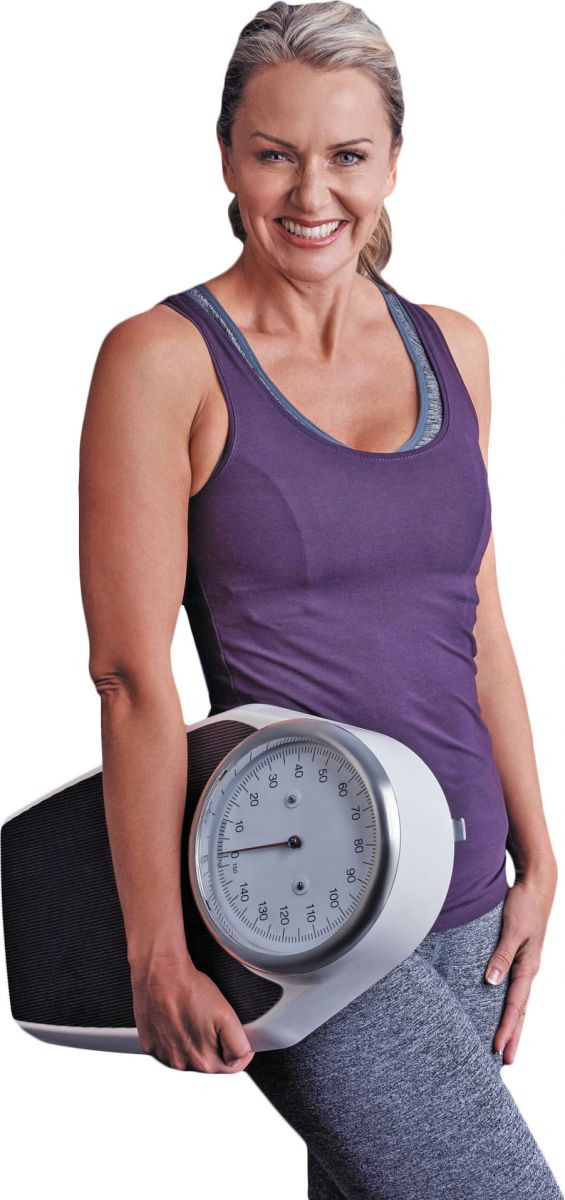
New thinking about plaque in arteries that feed the brain

Want to prevent shifting teeth? Maybe you need retainers

What you need to know about the new dietary guidelines

Food that’s healthier for people and planet can be cheaper, too

New evidence that polyphenol-rich foods help the heart

8 simple ways to reduce ultra-processed foods in your diet

How to curb your stress eating

How to spot Parkinson’s disease symptoms

Heart failure symptoms in women: How they’re different

GERD diet: Foods to avoid to reduce acid reflux
Diet & Weight Loss Archive
Articles
Yes, you can avoid weight gain over the holidays!
The holiday season presents a challenge to even to those most dedicated to health-conscious eating. Generally, people tend to gain a little weight during the holidays, but a study found that it is possible to avoid extra pounds.
Six activities can help obese people lose weight and keep it off
In the journals
Even if obesity runs in your family, certain activities may help you lose the weight and keep it off, according to a study published online Aug. 1, 2019, by PLOS Genetics.
Researchers recruited more than 18,000 adults ages 30 to 70 and examined their individual genes and exercise routines. Genetic profiles were created from blood samples that looked for certain gene variants related to obesity. Exercise was defined as at least 30 minutes of activity performed three times a week.
Can I reverse prediabetes?
Ask the doctors
Q. My doctor recently told me I have prediabetes. Is this condition reversible?
A. Yes, it is possible to reverse prediabetes. Prediabetes is a condition that affects millions of Americans. The CDC estimates that as many as one in every three American adults has the condition, which is defined as having blood sugar that is elevated, but not high enough to meet the threshold for diabetes. Left untreated, prediabetes can progress to diabetes, a condition in which your body is not able to absorb glucose for energy properly, causing blood sugar to rise. If it's not managed properly, diabetes can lead to a number of health problems, from heart attack and stroke to blindness, kidney problems, and infections, among others. But making some lifestyle changes can reduce the risk that your prediabetes will develop into diabetes.
Is it time to stop skimming over full-fat dairy?
For years, the conventional wisdom about dairy is that we should be eating less of it, and when we do have any it should be low-fat or fat-free. But more recent research suggests that some full-fat dairy in our diets could in fact be beneficial, though the type of dairy still matters.
Cutting 300 daily calories improves several health markers
In the journals
Reducing your daily calorie intake by about 300 can improve the numbers for several health markers, according to a study published online July 11, 2019, by The Lancet Diabetes & Endocrinology.
Researchers recruited 218 adults with a body mass index of 22 to 27.9, which is in the range of normal weight and slightly overweight. For a month, half the participants ate three meals a day that reflected about a 25% reduction in their normal daily calorie intake. They also engaged in six months of group and individual counseling sessions. People in the other group continued their usual diet.
Weekend catch-up sleep won’t fix the effects of sleep deprivation on your waistline
Trying to make up for not getting enough sleep during the week by sleeping longer on weekends has been found to have negative effects such as weight gain, expending less energy, and increased calorie intake during evenings.
Harnessing the power of high-intensity interval training
Adding short bursts of ramped-up exercise to your workout may be good for your waistline as well as your heart health.
For decades, competitive athletes have added brief bouts of strenuous exercise to their workouts to boost their performance. Known as interval training, this practice is now moving into the mainstream, bolstered by emerging evidence of its health benefits for all sorts of people, including those with heart disease.
"There's a growing consensus that interval training helps people lose weight and may have cardiovascular benefits," says cardiologist Dr. Stephen Wiviott, associate professor of medicine at Harvard Medical School. Also known as high-intensity interval training (HIIT), these workouts alternate between periods of high-intensity and lower-intensity activity. You can do intervals during any type of exercise — walking, running, cycling, swimming, or even while doing calisthenics, such as jumping jacks, push-ups, or squats. A longtime distance runner, Dr. Wiviott started doing HIIT workouts at his local CrossFit gym about a year ago. "Even though I was exercising for shorter periods of time, I lost body fat and felt better," he says. His positive experience spurred him to explore the evidence supporting HIIT.
Body fat may predict aggressive prostate cancer
In the journals
Excess weight not only raises your risk of prostate cancer, it can also mean more aggressive and fatal cancer, according to a study published online June 10, 2019, by Cancer.
Scientists found that the accumulation of visceral fat (the hidden kind that lies deep in the abdomen and surrounds the major organs) and subcutaneous fat in the thighs (which lies just under the skin) were both associated with a greater chance of developing advanced prostate cancer as well as dying from the disease.
Artificial light at night may lead to weight gain
Research we're watching
If you leave lights shining or keep the television on while you sleep, it could affect your waistline, according to a study published online June 10 by JAMA Internal Medicine. The study found an association between exposure to artificial light during sleep and weight gain in women.
The research team looked at questionnaires completed by more than 40,000 women, which asked, among other things, whether the women slept with lights on nearby or in the same room. The researchers also recorded the women's height, body mass index (a measure of weight in relation to height), and waist size at the time they entered the study and then five years later. They found that women who slept with a light or television on in the room were 17% more likely to have gained 11 pounds or more during the course of the study. They did not find a similar effect when women used a small night light or had a light on outside the room that shone in. It's not clear why exposure to artificial light was linked with weight gain, but researchers speculated that it might affect sleep quality.
Winning the weight battle after menopause
Lifestyle changes may not always be enough to control biologically driven body changes.
You spend hours in the gym every day. You eat nothing but grilled chicken, fish, and salads. Yet the numbers on the scale don't budge — or worse, they slowly creep up, along with your waist measurement.
Welcome to menopause.
"The change" actually does bring changes for many women, including weight gain that can resist even the most diligent efforts to reverse it, says Dr. Fatima Cody Stanford, instructor in medicine at Harvard Medical School.

New thinking about plaque in arteries that feed the brain

Want to prevent shifting teeth? Maybe you need retainers

What you need to know about the new dietary guidelines

Food that’s healthier for people and planet can be cheaper, too

New evidence that polyphenol-rich foods help the heart

8 simple ways to reduce ultra-processed foods in your diet

How to curb your stress eating

How to spot Parkinson’s disease symptoms

Heart failure symptoms in women: How they’re different

GERD diet: Foods to avoid to reduce acid reflux
Free Healthbeat Signup
Get the latest in health news delivered to your inbox!
Sign Up











